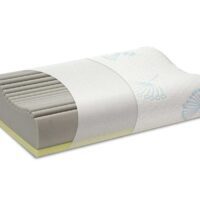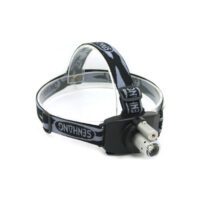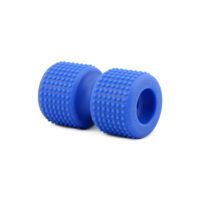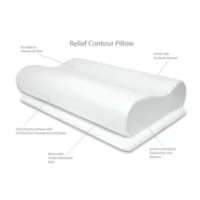Stiff Neck
Article by John Miller
Stiff Neck? Here’s What You Need to Know

Why Does Neck Stiffness Occur?
Neck stiffness, often referred to as a stiff neck, is a common condition affecting many people. It can range from mild discomfort to severe pain, significantly impacting daily activities. The main reasons for neck stiffness include poor posture, muscle strain, and prolonged use of technology. More serious underlying conditions, such as arthritis or injuries, can also cause neck pain.
How Does Neck Stiffness Develop?
Neck stiffness usually develops from habits or sudden movements. Poor posture, especially while sitting or standing, puts strain on neck muscles. Muscle strain can occur from overuse or sudden, awkward movements. Prolonged use of smartphones or tablets, often called “text neck,” leads to sustained muscle tension. In some cases, injuries from accidents or falls cause conditions like whiplash, contributing to neck stiffness.
Who Is Affected by Neck Stiffness?
Neck stiffness can affect anyone, but certain groups are more prone. People who spend long hours sitting, such as office workers and students, often experience neck pain due to poor posture. Individuals who frequently use smartphones or tablets are also at higher risk. Additionally, older adults may suffer from neck stiffness due to degenerative diseases like arthritis.
Where Can You Seek Help for Neck Stiffness?
If neck pain persists or is severe, it’s crucial to seek professional help. Physiotherapists at clinics like PhysioWorks offer expert diagnosis and treatment plans. They assess your condition through medical history reviews, physical examinations, and imaging tests like X-rays or MRIs. Visit PhysioWorks to find more information on how they can assist you.
When Should You Be Concerned About Neck Pain?
While most neck pain is not severe, certain symptoms require immediate attention. If pain lasts more than a week, is severe without an apparent cause, spreads to shoulders or arms, or is accompanied by weakness, numbness, or headaches, consult a physiotherapist or doctor promptly.
What Are the Treatment Options for a Stiff Neck?
Effective treatment for a stiff neck includes both at-home remedies and professional physiotherapy treatments.
At-Home Remedies:
- Relative Rest: Avoid activities that strain your neck.
- Ice or Heat Therapy: Apply ice or heat to reduce inflammation and pain.
- Over-the-Counter Pain Relievers: Medications like ibuprofen can help manage pain.
Physiotherapy Treatments:
- Manual Therapy: Techniques to mobilise and manipulate neck joints.
- Neck Exercises: Strengthening and stretching exercises to improve stability and flexibility.
- Posture Training: Guidance on maintaining proper posture to prevent future issues.
New Research on Neck Stiffness
Recent studies have highlighted the effectiveness of specific physiotherapy techniques for treating neck stiffness. A systematic review by Gross et al. (2015) found that manual therapy and exercise are effective in reducing neck pain and improving function (Gross et al., 2015). Another study by Blanpied et al. (2017) supports the use of a multimodal approach, combining manual therapy, exercise, and education, to manage neck pain and stiffness (Blanpied et al., 2017).
Conclusion
A stiff neck is a common issue, but with proper management, you can alleviate pain and prevent future problems. Understanding the causes, recognising when to seek help, and following preventive measures are crucial. If you’re dealing with persistent neck pain, consult a physiotherapist for a personalised treatment plan.
What to Do Next?
If you’re experiencing a stiff neck, seeking professional advice from a physiotherapist can make a significant difference. They provide personalised treatment plans tailored to your specific needs, helping you relieve pain and prevent future issues.
Rochedale - Call 38410277
Book Online: RochedaleSalisbury - Call 32751044
Book Online: SalisburySandgate - Call 32691122
Book Online: SandgateStiff Neck FAQs
- What Causes a Stiff Neck?
- A stiff neck can result from various factors including poor posture, muscle strain, and prolonged use of technology. Serious conditions like arthritis or injuries may also cause neck pain. Read more: Causes of Neck Pain.
- How Can I Prevent Neck Stiffness?
- Maintaining good posture, taking frequent breaks from sitting, and ensuring an ergonomic workspace can help prevent neck stiffness. Regular exercise to strengthen neck muscles is also beneficial. Read more: Preventing Neck Stiffness.
- When Should I Seek Medical Help for Neck Pain?
- Seek medical help if neck pain lasts more than a week, is severe without an apparent cause, spreads to shoulders or arms, or is accompanied by weakness, numbness, or headaches. Read more: What to do for Severe Neck Pain.
- What Are the Best Treatments for a Stiff Neck?
- Effective treatments include relative rest, ice or heat therapy, over-the-counter pain relievers, manual therapy, neck exercises, and posture training. Read more: Treatments for Neck Pain.
- Can Poor Posture Cause Neck Pain?
- Yes, poor posture is a common cause of neck pain. Sitting or standing with improper alignment strains neck muscles, leading to stiffness and discomfort. Read more: Posture and Neck Pain.
- How Does Technology Use Affect Neck Health?
- Prolonged use of smartphones or tablets, often termed “text neck,” leads to sustained muscle tension and strain, contributing to neck stiffness. Read more: Technology and Neck Pain.
Related Articles
- How to Improve Your Neck Posture
- Discusses simple steps to improve posture and prevent neck pain.
- Neck Pain Treatment Options
- Explains various treatment options for neck pain, including physiotherapy.
- Text Neck: Causes and Solutions
- Explores the impact of technology on neck health and how to mitigate it.
- Understanding Whiplash Injuries
- Provides insights into whiplash causes, symptoms, and treatments.
- Arthritis in the Neck
- Discusses the effects of arthritis on the neck and available treatments.
- How Physiotherapy Helps with Neck Pain
- Details how physiotherapy can alleviate neck pain and improve mobility.
- Managing Chronic Neck Pain
- Offers strategies for managing long-term neck pain.
- Ergonomics and Neck Health
- Highlights the importance of ergonomic workspaces in preventing neck stiffness.
- Manual Therapy Techniques for Neck Pain
- Explains various manual therapy techniques used to treat neck pain.
- Neck Strengthening Exercises
- Lists exercises to strengthen neck muscles and prevent stiffness.
These articles provide valuable information on related topics, helping readers explore further and manage their neck health effectively.

































































